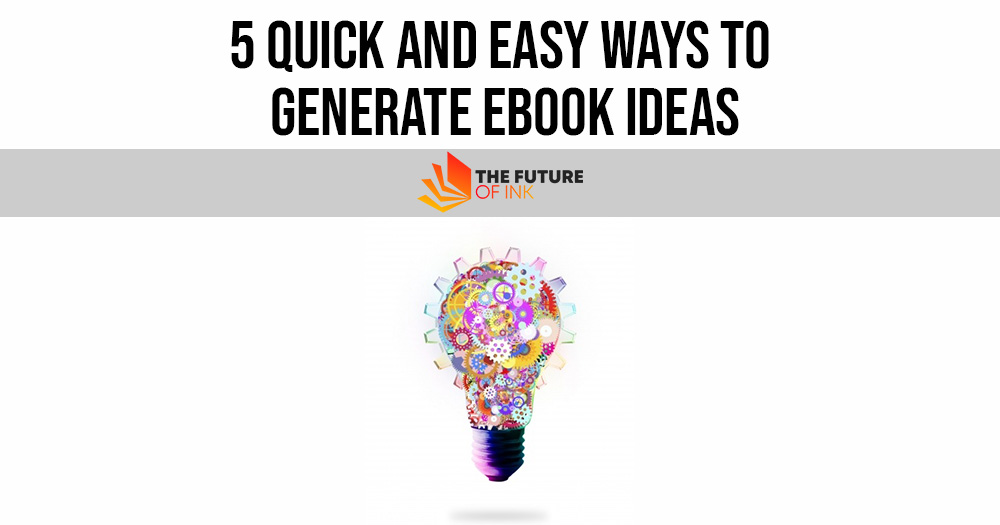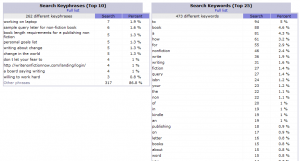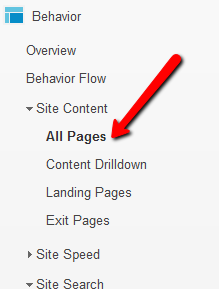Contents
You know you need an ebook to boost your credibility and business, but you don’t know where to start. You can’t even think of one idea that seems worthy of a whole book—even a short one.
So, you just sit and stare at your computer screen. You watch as your competition produces not just one bestselling ebook but two or three…or more. And you wonder, “How the heck do they come up with all those great ideas?”
Finding the right idea for your business-boosting ebook doesn’t have to be so difficult. In fact, if you try the five methods below, you will soon find the perfect idea for your first ebook—if not a few ideas.

Before you know it, you will have more ebook ideas than you can possibly write in a year.
1. Ask your clients or customers what they would like to know

If you want to write a book that serves the needs of your clients and customers, the best way to accomplish this goal involves asking them what they want.
Send them a survey.
When you speak to them in person or on the phone, never end a meeting without asking them to tell you what they would most like to know about your business, service, or product.
Once you have asked 10-50 people, tally up the answers. I bet you’ll have enough data to produce at least 1-10 books.
Also Read: Blog an Ebook to Gain Exposure and Successfully Promote Your Book
2. Ask yourself, your partners, or your sales team to identify the most common question they get asked
In every business, customers and clients typically ask questions about the products and services we offer.
We don’t even need to solicit answers to our own questions about what they want to know; they provide this information every time they call us or come in to inquire prior to making a purchase.
If you take the time to survey your sales team or partners about the most common questions they field, you will soon know what topic to cover in a book or in multiple books.
Simply by answering your customers’ or clients’ questions, you can produce the book they desire.
3. Look at your website stats to see what keywords or keyword phrases are most searched for

You don’t need to know a lot about Search Engine Optimization (SEO) to put your website stats to use when searching for book topics.
If you have a self-hosted blog, which means you pay for hosting, or a website, go to your c-panel analytics program, and look for the information on keyword searches and keyword phrase searches.
This indicates the terms put into search engines, like Google, by the people who show up on your site.
These search terms, also known as keywords or keyword phrases, offer good choices for books subjects because you know your potential readers, who are also potential customers and clients, are search for information on them on the Internet.
Not only that, when they do so, they are finding you!
4. Look at your website to see which past articles get the most traffic

Using the same strategy as proposed in #3, use Google Analytics to check for the most-read posts on your blog.
If potential readers are finding these posts via searches, which means searches cause potential clients and customers to land on your site, this information is just as golden as the keywords and keyword phrases you uncovered previously.
Once you know which posts are most popular, you know what topics interest your potential readers—and what topics to focus on when writing your ebooks.
Hint: Just expand on your popular blog posts!
5. Spy on your competition

Take a look at what your competition is doing or has done. If you know your competition has done a great job (or not such a great job) of writing an ebook or producing a blog, spend time reading what they write.
Figure out how you can do it better and differently. You need to study your competition to produce a unique and necessary book for your market in any case, so consider this a competitive analysis. Of course, don’t plagiarize.
Put your own spin on an idea! (Ideas cannot be copyrighted.)
Add your own great experience and information! No two people can write the same book. I’m not suggesting you steal anything from anyone; be ethical and creative.
Also Read: 7 Simple Steps to Selecting the Right Topic for Your eBook or Digital Product
Find a Topic That Combines Passion and Purpose
In the end, you must also find a topic you feel passionate about and that serves your purpose or the purpose of your company. When you combine passion and purpose into a book topic, you’ll get inspired.
That’s when the best idea will pop into your head, and you will sit down and write your book easily and effortlessly!
And would you do us a favor to help get the word out about The Future of Ink? Share these ebook tips with your friends…thanks!




